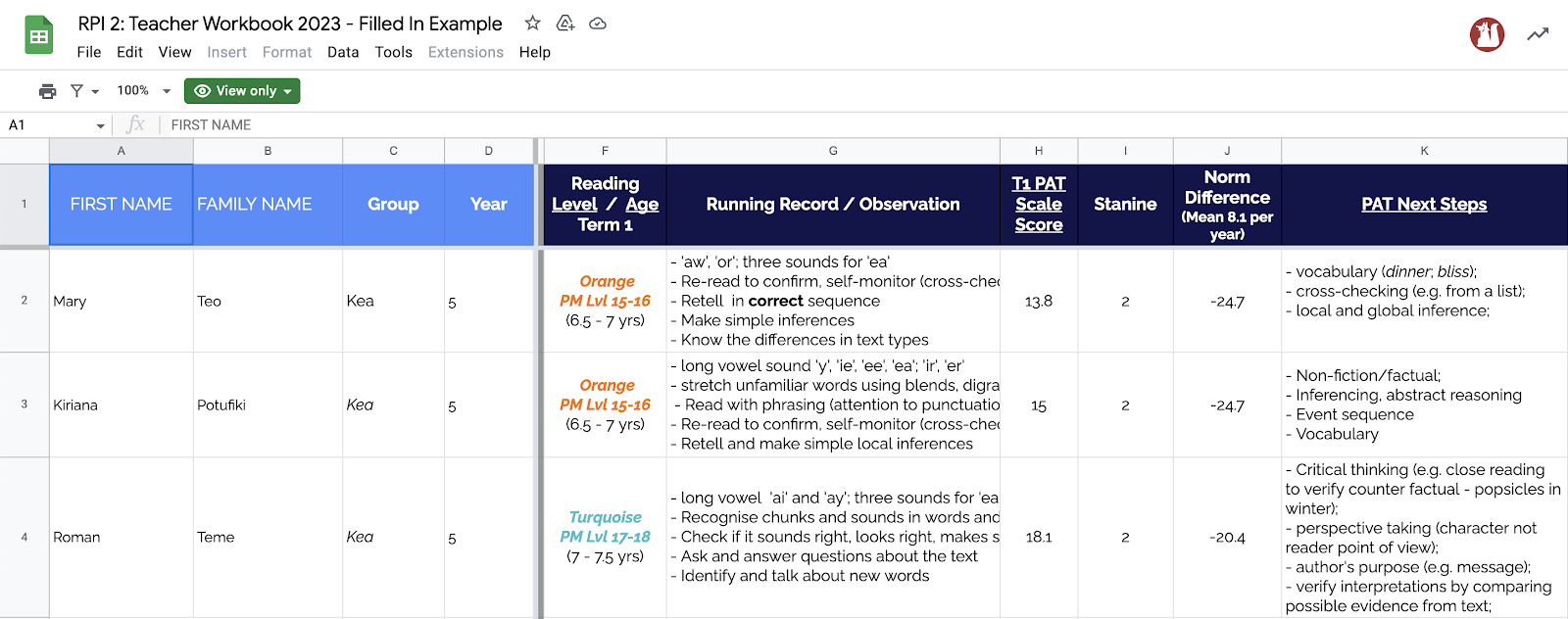Our second Manaiakalani Reading Programme Intensive (RPI) began with some tāhuhu kōrero about the beginnings of Manaiakalani and further information on how its' basis was formed. Our ākongā live in a highly digital world, and it is important to acknowledge where our learners come from and as teachers, educate ourselves on how we navigate through this digital world. Reading has always been foundational to Manaiakalani’s programme since its inception at the end of 2006. I was interested to hear that Manaiakalani teachers actually designed the basis of the programme - they agreed that without literacy, other curriculum areas would too be hindered - so it made sense to really work on reading.
Today I have taken away a lot about assessment - and it has already improved
my confidence (and hopefully therefore my capability) in teaching reading. A large focus of today's session was dedicated to assessment both formative and summative.
Together we also analysed the results of our learners' PAT Reading Comprehension assessments. I found this extremely helpful not just so I understood what I was looking at, but also developing new ideas as to what I can use the data for in terms of planning next steps for my students. I found the linking between the PAT results and the task board activities a very practical example of how we can use the data in meaningful ways to plan reading programmes. Learning about 'effect size' was another interesting part of today.
In this session I learnt a multitude of things that I can use with my learners. I also really liked the example that was provided of a "task board" for the week - so I am looking forward to creating one for our reading group as homework. We also discussed benefits of going through the learner's assessment results with them in order to co-construct their next steps or specific goals within reading.
I also think it would be worthwhile to show the students where they may stand in terms of progression through the reading levels. I'd never really considered showing my students what levels they are working at unless it was a report card type of situation that was talked through with their whanau. I now believe it may be beneficial to discuss with students their progress more regularly in an informal way - this would set both the learner and myself up with a shared learning goal.
Currently, my syndicate has already set up a document for each teacher that they use to input assessment data etc. Nevertheless, something I was shown today and able to explore was the templated Teacher Workbook. I would definitely recommend this to anyone who is currently teaching without having a 'one stop shop' for their assessment and observation notes.
As a beginning teacher, it was extremely helpful to view an example of a 'filled in' workbook and what things would go where. My teaching would definitely benefit from having all of these assessment details and notes in one place, so it is something I am now working towards having as another tool in my kete.




.jpg)
Kia ora Toreka
ReplyDeleteThank you for sharing your reflections on Day 2 of the Reading Practice Intensive: Know Your Learners as Readers. I completely agree: it is interesting to hear how reading has been foundational to the Manaiakalani Programme and how the Literacy Cycles played a key part in the kaupapa and pedagogy as we know it today. It must be even more special for you as a former learner that has been a part of that rich history.
I was pleased to hear you took so much away from the day about assessment practice and the associated decisions we make as teachers to inform our learning design. As you say, the value is in planning those targeted next steps from what we’ve gleaned from the data and making the goals visible through learning intentions to empower learners in the process. I definitely agree with your take away about how important it is to make assessment outcomes transparent for learners so that they can play their part as “difference makers” in their learning!
Thank you for your positive feedback on the Teacher Workbook and for saying you would recommend to teachers who possibly don’t have a tool for tracking data. I would be really keen to look at what you have in place already as we are always inquiring into ways to do things “smarter” not harder for RPI teachers. If you think there are affordances with your current template please do share those design features with us. It may be of course, that the two are quite similar…
I really look forward to reviewing the task board designs that everyone is working on for homework and that these activities can be shared for our collective benefit.
Have a great rest of your week.
Nga mihi
Naomi R.
Literacy Facilitator - Manaiakalani Reading Practice Intensive
Hey Toreka,
ReplyDeleteI really enjoyed reading your reflection on the day, thanks for sharing. I'm glad you found the sessions useful. I'm also really happy to see you reflecting on sharing the learning journey with your learners, as it really does make a big difference to their motivation when they can SEE how they are doing, where they need to get to and how they might do so.
Looking forward to seeing your task board next week!